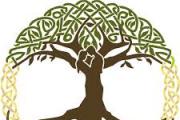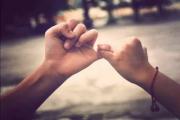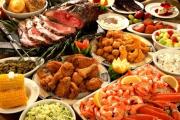Execution. The main problems of mankind Vice in the list of virtues
All people are imperfect and subject from time to time to certain sins. Of course, you need to try to improve yourself and improve, but in order to know how to eliminate your own shortcomings, you should first familiarize yourself with the list of the main human vices that is given in this article.
What is vice?
Vice acts as a moral and spiritual shortcoming, opposed to good. This is everything that is contrary to goodness and truth, vices include any kind of moral perversion, distortion, inclination to evil, bad life.
Vice is always a violation of the norm. It is sad to realize, but in nature there are no ideal people at all, everyone has some kind of sins.
Although the name “mortal sins” inspires some horror, in reality they are nothing more than information that a person must realize, accept and begin to process. If you are not trying to run away from the truth and recognize the presence of some kind of sin, then you are already ready to start dealing with it.
Having a sincere desire to start fighting your vices and improving yourself, be sure to read on.
Major human vices list
In total, seven generally established human sins are distinguished - laziness, gluttony, pride, lust, greed, anger and envy. Of course, this list can be listed indefinitely, but these seven vices were singled out separately, since it is they that contribute to the emergence of other sins.
All people from time to time encounter the described sins in their entire lives. It is also important to remember that sins differ from each other in their semantic characteristics.
For example, for some of them a person is to blame before his personality, his religion, and for other shortcomings - before the surrounding people.
According to the popular point of view, pride is the most terrible vice. This is explained by the fact that a proud person defies the Creator himself.
- Laziness(may also manifest as apathy, depression, unwillingness to do something). Laziness is a lack of diligence or its complete absence. Lazy people cannot be useful to their society.
But sometimes it is vital for each of us to be lazy in order to save our energy and improve our future life. The main thing is not to overdo it.
- Gluttony(also known under the guise of gluttony). This is a pathological passion for delicious food, which a person consumes in excessive quantities.
It should be noted that alcoholism is also one of the varieties of gluttony. Lovers of delicious food often suffer from overeating.
- Anger(it also manifests itself in the form of rage, anger, aggression, desire for revenge). Anger is a negative emotion that is directed towards a sense of injustice. At the same time, a person is overcome by a strong desire to eliminate this injustice.
- Greed(known under the guise of greed and miserliness). Greed is the desire to own as many material goods as possible, when a person simply loses a sense of proportion.
- Envy(This vice is also manifested in the form of jealousy). Envy acts as a person's desire to possess the same things that more successful individuals possess. A person overcome with envy can commit various terrible deeds.
- Pride(also known as pride with arrogance). It manifests itself in the form of selfishness (egocentrism), excessive pride, arrogance. If a person is overcome by pride, he boasts of himself to other people and is firmly convinced that it is his opinion that is the most correct.
- Lust(manifested in the form of debauchery, fornication, voluptuousness). Lust acts as a gross sexual desire, forbidden passion, secret desires. In general, this vice includes any kind of desire, because of which a person faces some inconvenience or suffering.

Sociologists conducted an interesting study, the result of which was a "hit parade" of mortal sins. In the first place in it were anger and pride, and in the last place were laziness with greed.
How to deal with your vices
It is not enough just to know the list of the main human vices. If you really want to start improving yourself, then get rid of your own shortcomings. How to do this - we will tell further.
- Pride. To cope with pride, you should feel a sense of respect and love for other people, regardless of what position in society and status they have. You must try to understand that others, just like you, are part of a single universe in which everyone must live in harmonious relationships with the world.
- Greed. How can you deal with this vice? It is necessary to start treating things differently, to understand for yourself that real life values are never material. And an expensive car or apartment is all a means to help you lead a normal life, not objects to be worshipped. True values are always hidden in the depths of ourselves. They lie in our faith, our ability to change ourselves and our lives for the better.
- Envy. If you want to eradicate the feeling of envy in yourself, then you must eliminate the feeling of contempt for those people who have achieved more success in life. In addition, they really have no idea about your feelings and in no way can affect your success.
Learn to live without looking back at the happiness and success of others, focus only on yourself and you will certainly be able to succeed in the business in which you dream of doing it.
- Lust. To eliminate the sin of lust, you should not allow intimacy in cases where you do not have any feelings for a partner. Sex is a manifestation of love, and if there is no love, then it is impossible to talk about full-fledged intimacy.
- Anger. To stop getting angry often, analyze the situation or people from whom you feel the energy of danger, which inspire you with a sense of fear. Most likely, in reality, they are not at all as dangerous as you think about them. Engage in the study of your fears, realize their true essence - this will help you discover the root cause, and therefore quickly eliminate them in principle.
- Laziness. Not everyone is aware that laziness can be not only harmful, but also useful. Just give yourself a little physical and mental rest from everyone and everything. Be alone with yourself, letting go of all thoughts and not taking any action. Being lazy for a while, you will realize that such a state only causes boredom in you and you will come to a normal tone.

You need to find motivation for action - promise yourself to go where you have long wanted to treat yourself to pleasant shopping, to see friends. After all, the way out of the state of laziness and your work must certainly receive a well-deserved reward.
Now you know the main human vices that make us worse and prevent us from developing and improving. Try to protect yourself from negative emotions, eliminate negativity from your life as much as possible, be open to the world and let love into your heart - then none of the seven vices will be able to cling to you.
Finally, be sure to watch an interesting thematic video material:
The main problems of mankind are by no means global problems of economics, ecology or other sciences. In my opinion, all global problems are rooted in the problems of every person living on earth (or rather, in the vices of people). These vices prevent us from living happily and enjoying life, moreover, they distract us from the fact that we get lost in the details and forget about the main thing.
Of course, having delved into ourselves, each of us will find a wide variety of vices and flaws, they will all be a little different, but in essence, they come down to three main vices common to all mankind.
The first vice: the desire for pleasure.
Here you need to immediately share the desire of a person to be happy, rejoice, etc. and seeking pleasure. Human happiness comes down, ultimately, to co-participation in the lives of others, i.e. in friendship and And pleasure is the conscious stimulation of the receptors of your body to get pleasant sensations (emissions of all kinds of hormones). We strive to enjoy the consumption of various goods, unusual food, sex, alcohol, and so on.
Is it possible to say that everything that pleases us is a vice, and a person should not do anything pleasant to himself? Not at all. It is only important to remember why you are doing this, and what remains in the end.
For example, if you order pizza with friends, is it more important that you eat pizza with friends or are friends a reason to order pizza?
The aftertaste of a good deed is joy, from what it was. And after satisfying the thirst for pleasure - calm (thirst let go), sometimes regret, and soon - the return of thirst with even greater force. And if we realize that our actions are not determined by the desire for happiness, but by the thirst for pleasure, this is an alarming signal that we have a problem and it is time to change something in life.
Actually, this thirst is the reason for the emergence of a global problem of mankind associated with the consumption of huge resources for its own satisfaction (and, hence, the problems of ecology, economics, etc.)
The second vice is the desire for wealth.
This is the desire to earn money for the sake of money (strongly assuring ourselves that this is not for the sake of money, but the means we really need), the desire to have a bunch of things we don’t need. The manifestation of this second main vice of mankind depends on the capabilities of man. Some change cars one after another, others change cell phones. Those who are poorer buy every little thing, pseudo-branded clothes, and so on.
And again, when buying any item, you just have to reflect on the purpose for which we are doing this in order to understand why we want to buy it: because we really need this item functionally, or just to have it. Why do we need three wall clocks in a room? Why do we have a PDA and a bunch of perfectly working cell phones in our desk drawer? Why buy super-speakers if there is no hearing anyway?
We spend a huge amount of money, time and effort on the purchase of these unnecessary trinkets, while our life is short and we need to have time to do the main thing in life.
The third vice: the lust for power
The desire to be the coolest, to command, to subdue, control and manipulate others. The vice of wealth is partly a consequence of the lust for power - through wealth, we try to somehow elevate ourselves above those who are poorer than us. We all know the expressions “power is like a drug”, we can immediately recall stories about petty officials who think they are cool and important, school hooligans and the like. But in each of us there is this thirst for power, the desire to be better than others, more important and more authoritative.
I don’t know if it’s necessary to say that power is primarily responsibility (and a headache), and those who don’t chase ranks, but simply do their job, have real authority and respect.
In any of the main problems of mankind, be it wars, crises, poverty, famine, depletion of resources, you will find traces of these three main vices of man. It is impossible to eradicate these vices on a global scale, and therefore, our world will never be happy. But you can start to get rid of these vices in yourself, and then your specific life and the life of the people around you can become much happier.
And now you can go to
or see other interesting entries from the category .
How much the world is worth, people in one way or another show their inherent personal qualities, both good and bad. Following church terminology, positive qualities can be called virtues, and negative ones vices, but now the general concept of “moral qualities” is much more often used.
A person who is in the grip of vices often spoils not only his own life, but also the lives of other people. Should I fight my vices? Is it possible to deal with them? In search of answers to these questions, someone manages to find other values in life, change its quality.
What are the vices
In Christianity, there are several major vices (sins), which give impetus to the development and manifestation of many other vices. These are: pride, greed, lust, anger, gluttony (gluttony), envy, laziness and despondency. It is worth dwelling briefly on each of them.
Pride causes a person to consider himself exceptional, not allowing him to ask for advice and support from his neighbor or take advantage of sincerely offered help. Undoubtedly, everyone should rely on their own strength, overcoming circumstances, but sometimes someone's help is simply necessary, and refusing it can be perceived by another person as a disregard for his good intentions. The proud do not see their own shortcomings, mistakes, bad character traits - all that can “equalize” them with others.
Greed is disgusting. Those who have this vice strive for profit by any means, regardless of the legitimate interests of others, not ashamed to deceive an old man or a child, not thinking about the families of those whom they ruin. Kindness, generosity, disinterestedness cannot be expected from them; it is also useless to appeal to conscience or pity. Wealth does not bring them happiness, because its accumulation does not change life for the better: something is always missing, you want to hit a new jackpot, and all thoughts are subordinated to this goal. But who did the big money help, what good deeds did they go to? There will be no answer.

A lecherous person is incapable of fidelity. He does not care about family values and the feelings of the partner he is cheating on. Following the lead of vice, a person makes considerable efforts to satisfy his needs, showing miracles of resourcefulness. It is vice that guides many of his actions, he truly lives (in his understanding) only in the process of conquering or subjugating a new object of lust. But time passes, and again new impressions are required. In relation to marital relations, such concepts as love, respect, honesty, are not fundamental for a lustful person, but he does not see anything wrong with betrayal, cunning and shameless lies.
Anger fills the mind. Giving in to anger, people lose control over themselves and the ability to think logically. This vice destroys relationships with other people, because its manifestations humiliate and repel others. Distorted facial features, an elevated tone of conversation, turning into a "scrape" or scandal, baseless accusations, the desire to destroy surrounding objects, an irresistible desire to do something in retaliation for the offender - these are just a few external signs of anger. Decisions made in this state are not always adequate to the situation and can do more harm than help solve the problem.
Gluttony can be told by those who are familiar with excesses in food and a feeling of satiety. Often people tell themselves to eat right, be fit and be active, but the weeks follow each other, and nothing changes in life. Extra pounds accumulate, appearance and well-being worsen, from which negative emotions appear, and then apathy comes due to a lack of vitality. Yes, and where does it come from, if the body is busy digesting abundant food for days on end, and many thoughts are connected only with the topic of nutrition. In such a state, a person is unlikely to burn with a desire to help his neighbor or to strive for a goal that requires personal effort, such as building a worthy career or self-improvement.

Envy does not allow you to enjoy life. An envious person makes a lot of effort to have more than he already has, but only to surpass a neighbor or colleague. This vice pushes people to meanness: to gossip, slander, set up, destroy a marriage - such means are used to “fight” against objects of envy. Those who are unable to carry out these measures torment themselves with envy, poisoning their souls with impotent malice, instead of building their own happiness.
Laziness is not at all harmless. He who is lazy will find many reasons that prevent him from doing this or that, but most of them are excuses. Busyness, fatigue, opposition from other people, breakdown of transport, lack of information, force majeure - there are no excuses for inaction for a lazy person who does not want to work or fulfill someone's request. At the same time, often, he himself believes that circumstances are to blame for everything, not wanting to think about the presence of a vice that interferes with work, taking care of someone, striving for something and achieving something.
Despondency is dangerous because a person stops seeing the good around and believing in himself, which deprives him of the joy of life and hope for the best. Sad thoughts leave no room for optimism and hinder progress. Despondency on the face and in the eyes causes pity in the interlocutors or, conversely, irritation and unwillingness to communicate, because it is difficult to expect anything from a person with such a mood, except for complaints. Those who do not fight despondency and allow it to become a habitual state of mind are not far from depression, which is even more difficult to cope with on their own.

Is it worth it to fight evil?
It is a mistake to think that vices are character traits, and nothing can be done about it. It is important to remember that the main vices are accompanied by other vices - violence, cruelty, greed, extravagance, irresponsibility, drunkenness, lies, indifference, meanness, etc. There is little that restrains vicious people in an effort to achieve their goals by any means, even criminal ones.
Realizing that he has negative moral qualities, and making efforts to eradicate or diminish their manifestations, a person can become much happier and achieve a lot in life, without stepping, as they say, on the heads of other people.
It is difficult to understand the underlying causes of one’s life position on one’s own; one must carefully look for sources of additional knowledge, which can be, for example, spiritual and classical literature, books by professional psychologists designed for a wide audience of readers, and expert advice. When learning new things about human nature, one should try to be objective towards oneself in order to understand emotions and their causes, to sensibly assess one's abilities and capabilities. Constant work aimed at developing and improving oneself brings, over time, excellent results, and does not allow one to stagnate in search of those to blame for one's own failures.
-Headings
- Interesting facts (227)
- what is Wisdom? (171)
- Life is beautiful (169)
- What is the meaning of life? (164)
- RUSSIA (107)
- Man and Woman (79)
- what is Orthodoxy? (67)
- Humor (64)
- Russian authorities (52)
- Family relations (49)
- Evil faith in Russia (49)
- History (46)
- what is a family (43)
- USSR (42)
- medicine (36)
- Novorossiya (31)
- Useful Internet (30)
- Recipes (27)
- Human Capabilities (26)
- Entertaining astronomy (24)
- Photography Geniuses (22)
- What is mysticism (20)
- Artists (16)
- what is capitalism (13)
- A little about sex (12)
- Gray "people" (10)
- Eros (8)
- what is loneliness (8)
- what is scientific atheism (8)
- Video for the soul (8)
- My "creativity" (8)
- computer literacy (7)
- Relax (7)
- who is lucifer? (7)
- children's speech therapist in michurinsk (6)
- What is hell (5)
- what is gratitude (4)
- how people live in belarus (3)
- flash (3)
- Michurin authorities (3)
- Soviet films (2)
- Media Group Movement Russian World (2)
- How the universe came into being (2)
- What is the Holy Grail? (1)
- Weather forecast (0)
-Music
-Diary search
-Subscription by e-mail
-Friends
-Statistics
The main vices of man
Each of us is endowed with human qualities, both good and bad.
I propose to get acquainted with the most unpleasant, and sometimes simply unbearable qualities inherent in some "individuals".
So, the main vices of man
"Having lied once, he will always lie." Stay away from these "people".
Liked: 9 users
- 9 Liked the post
- 6 Quoted
- 0 saved
- 6Add to quote
- 0Save to links
And the post is definitely good.
Love and Happiness to you and your home.
I have a dog at home. All her feelings are not hypocritical, but sincere. She rejoices at my coming home, and yearns when I'm gone.
She doesn't need treats from someone else's hands, she needs me and my family, and I know for sure that she will never betray.
I took her as a small puppy on the street, an ordinary mongrel. And got a devoted friend.
Less and less in life we value virtue, more and more we show indifference to everyone and everything, and cruelty.
For me, the most important thing in a person is decency!
Decency in everything, and in relationships, in the first place.
Morality and spirituality are the fundamental trait of a Man to be called Him.
The main vices of man
At all times of the existence of mankind, people, due to certain character traits, are characterized by the manifestation of certain human qualities. And many representatives of the human dynasty tend to talk about the qualities (especially impartial) of their interlocutors, colleagues, acquaintances, not noticing, as they say, "a beam in one's own eye."
But each of us is endowed with human qualities, both good and bad. We offer you to get acquainted with the most unpleasant, and sometimes simply unbearable qualities inherent in some individuals.
So, the main vices of man
1. Greed - an uncontrollable thirst to save, to own as many material values as possible and unwillingness to share one's wealth with anyone. From people with this quality, one should not expect even the slightest gesture of generosity.
2. Indifference is a trait of human character, expressed in the lack of the ability to empathize, the manifestation of callousness to the sorrows and troubles of other people. It is an indifferent attitude that gives rise to a sense of permissiveness and impunity in dishonorable people. Hence a lot of murders and other crimes.
3. Hypocrisy - the ability of a person who does not have a drop of sincerity to take a pasture position for himself. It manifests itself in the ability to put on a suitable “mask” of pretense at the right time in order to look better in the eyes of others than it really is, without exposing one's own base essence.
4. Envy - a manifestation of a negative attitude in the form of hostility and hostility towards people who have reached greater heights than the envious person himself. Someone else's well-being overshadows the mind, giving rise to a sense of one's own inadequacy. Envy is a bad feeling
5. Cruelty is a terrible personality trait, expressed in the need to inflict suffering on living beings (people, animals), both moral and physical. Moreover, at the same time, a cruel person experiences a sense of satisfaction at the sight of other people's suffering.
6. Anger - a hostile manifestation of anger, irritation and hostility towards someone. Often accompanied by not quite adequate aggressive behavior.
7. Cunning - the ability to pretend, dodge and dodge in any situation while achieving personal goals in all sorts of ways, regardless of generally accepted canons.
8. Selfishness - overestimation of the importance of one's own person. It is expressed in a disdainful attitude towards the interests of others, one's own interests are above all.
9. Insolence - a manifestation of disrespect, contempt for the interlocutor, accompanied by frank attempts to provoke him to a scandal. It can be expressed in the form of unpleasant rude gestures (waving sticking out fingers), an increased tone in conversation, a piercing impudent look in order to confuse the interlocutor, the use of lies. It is characteristic of self-confident types who feel their impunity.
10. Vanity - the tendency to attract the attention of others, to impress even with negative actions. The desire to hear laudatory flattering speeches addressed to one's person is due to the desire to be a famous and revered person. Often expressed in the excellent ability to brag.
Here are perhaps the most common immoral qualities of human nature. Although this is still not the whole list of existing vices inherent in many human beings.
Comments
Just wanted to say I love reading your blog and look forward
to all your posts! Keep up the superb work!
Add a comment
New rubric
News
And here what?
Do not leave our site home and family without knowing all the details - How to choose a husband This article will help you avoid the difficulties of choosing
No woman is complete without her tricks - Women's Tricks
They say there are husbands who can cheat, and this article clarifies the same questions about wives Why do wives cheat
Main menu
Can a man have secrets from you, find out about it in the article - What men are silent about
Your quarrel with a loved one becomes protracted, then read about the intricacies of a quarrel - How to quarrel correctly
How to wage a fierce fight against laziness - How to overcome laziness
There are also negative times in relationships - Crisis of family relations
These and other news can be found on our website - home and family
Heart defects: classification, diagnosis
Heart defects are pathological changes in which there are congenital or acquired defects in the valves of the heart, aorta, pulmonary trunk, atrial and interventricular septum. These changes cause disruption of the normal functioning of the heart, which leads to an increase in chronic heart failure and oxygen starvation of body tissues.
The incidence of heart defects is about 25% of the rest of the cardiac pathology. Some authors (D. Romberg) give personal data with higher values - 30%.
What are heart defects, classification
Among the many classifications of defects on the grounds, there are:
- acquired- the main cause is rheumatism, syphilis, atherosclerosis;
- congenital- There is no unambiguous answer to the question about the reasons for their occurrence, the problem is still under study today. Most scientists agree that the pathological process is triggered by changes in the human genome.
Malformations affecting the valves:
- bicuspid (mitral);
- tricuspid (tricuspid);
- aortic;
- pulmonary trunk.
According to the type of damage to the valvular apparatus, heart defects can occur in the form of:
- insufficiency (incomplete closure of valves);
- stenosis (narrowing of the openings through which blood passes).
Depending on the degree of existing chronic circulatory failure, the following may appear:
- compensated defects (the patient is able to live, study and work, but with limitations);
- decompensated pathologies (the patient is sharply limited in the ability to move).
The form of severity provides for vices:
According to the number of formed defects, defects are distinguished:
- simple (with an existing single process);
- complex (a combination of two or more defects, for example, the simultaneous presence of insufficiency and narrowing of the hole)
- combined (a problem in several anatomical formations).
Important: some doctors in their practice have noticed that men and women have their own characteristics of the course of disease processes.
Women (girls) are more likely to:
- non-closure of the ductus arteriosus. As a result of the pathological process, a relatively free communication is formed between the aorta and the pulmonary trunk. As a rule, this cleft exists normally until the birth of the child, then closes;
- a septal defect between the atria (a hole remains that allows blood to flow from one chamber to another);
- defect of the septum, designed to separate the ventricles, and non-closure of the aortic (botal) duct;
- triad of Fallot - a pathological change in the septum between the atria, combined with a narrowing of the opening of the pulmonary trunk and supplemented by an increase (hypertrophic) overgrowth of the right ventricle.
Men (boys) usually have:
- narrowing of the aortic opening (aortic stenosis) in the region of the aortic valve cusps;
- defects in the connection of the pulmonary veins;
- narrowing of the isthmus of the aorta (coarctation), with an open ductus arteriosus;
- atypical location of the main (main) vessels, the so-called transposition.
Some types of defects occur with the same frequency in both men and women.
Congenital malformations can develop early in utero (simple) and late (complex).
With the formation of fetal pathologies at the beginning of a woman's pregnancy, a defect remains between the aorta and the artery of the lung, the non-closure of the existing opening between the two atria, as well as the formation of a narrowing (stenosis) of the pulmonary trunk.
In the second, the atrioventricular septum may remain open, a defect in the tricuspid (tricuspid) valve also occurs with its deformation, complete absence, atypical attachment of the valves, "Ebstein's anomaly".
Note: a very important classification criterion is the division of vices into "white" and "blue".
White defects are pathologies with a calmer course of the disease and a rather favorable prognosis. With them, venous and arterial blood flows in its own way, without mixing and without causing tissue hypoxia with sufficiently measured loads. The name "white" is given by the appearance of the skin of patients - a characteristic pallor.
- defects with stagnation of oxygen-enriched blood in the pulmonary circulation. Pathology occurs in the presence of an open arterial duct, a defect in the interventricular or interatrial septum (enrichment of the pulmonary circulation);
- defects with insufficient blood flow to the lung tissue (impoverishment of the pulmonary circulation) caused by narrowing (stenosis) of the pulmonary artery (trunk);
- defects with a decrease in the flow of arterial blood, causing oxygen starvation of the organs of the human body (depletion of the systemic circulation). This defect is characteristic of narrowing (stenosis) of the aorta at the location of the valve, as well as narrowing of the aorta (coarctation) at the site of the isthmus;
- defects without dynamic disorders of circulatory circles. This group includes pathologies with an atypical location of the heart: on the right (dextrocardia), on the left (sinistrocardia), in the middle, in the cervical region, in the pleural cavity, in the abdominal cavity.
Blue defects occur with a mixture of venous and arterial blood, which leads to hypoxia even at rest, they are characteristic of more complex pathologies. Patients with bluish skin color. In these painful conditions, venous blood is mixed with arterial blood, which leads to a lack of oxygen supply to tissues (hypoxia).
This type of disease process includes:
- defects with blood retention in the lung tissue (enrichment of the pulmonary circulation). Transposition of the aorta, pulmonary trunk;
- defects with insufficient blood supply to the lung tissue (impoverishment of the pulmonary circulation). One of the most severe heart defects of this group, tetralogy of Fallot, is characterized by the presence of a narrowing of the pulmonary artery (stenosis), which is accompanied by a septal defect between the ventricles and the right (dextrapposition) position of the aorta, combined with an increase in the size of the right ventricle (hypertrophy).
Why do heart defects occur?
The causes of pathology have been studied for a long time and are well monitored in each case.
Causes of acquired defects
They occur in 90% of cases due to past rheumatism, which gives a complication to the structure of the valves, causing damage to them and the development of the disease. For a long time, doctors who treated this disease had a saying: "rheumatism licks the joints and gnaws at the heart."
Also, acquired defects can cause:
- atherosclerotic processes (after 60 years);
- untreated syphilis (for years);
- septic processes;
- chest trauma;
- benign and malignant neoplasms.
note: Most often, valvular acquired defects occur before the age of 30 years.
Causes of birth defects
The factors that cause the development of congenital malformations include:
- genetic causes. Hereditary predisposition to the disease has been noted. A gap in the genome or chromosomal mutations cause a violation of the correct development of heart structures in the prenatal period;
- harmful effects of the environment. The effect of ionizing rays on a pregnant woman, cigarette smoke poisons (benzpyrene), nitrates contained in fruits and vegetables, alcoholic beverages, drugs (antibiotics, drugs against tumors);
- diseases: rubella measles, diabetes mellitus, amino acid metabolism disorder - phenylketonuria, lupus.
These factors can cause problems in the developing baby's heart.
What happens to the heart and circulation with acquired defects
Acquired defects develop slowly. The heart includes compensatory mechanisms and tries to adapt to pathological changes. At the beginning of the process, hypertrophy of the heart muscle occurs, the cavity of the chamber increases in size, but then decompensation slowly forms and the muscle becomes flabby, loses the ability to function as a “pump”.
Normally, blood during the contraction of the heart is "pushed" from one chamber to another through an opening with a valve. Immediately after the passage of the blood portion, the valve leaflets normally close. In case of valve insufficiency, a certain gap is formed through which the blood is partially thrown back, where it merges with the new “portion” that has already come up. There is stagnation and compensatory expansion of the chamber.
When the hole narrows, the blood cannot pass in full, and the rest of it complements the arriving "portion". Just like with insufficiency, stenosis occurs with congestion and dilation of the chamber. Over time, compensatory mechanisms are weakened, and chronic heart failure is formed.
Acquired heart defects include:
- mitral valve insufficiency- due to the development of cicatricial processes after rheumatic endocarditis;
- mitral stenosis(narrowing of the left atrioventricular opening) - fusion of the valve leaflets and a decrease in the opening between the atrium and the ventricle;
- aortic valve insufficiency- incomplete closure during the period of relaxation (diastole);
- narrowing of the aortic mouth- the blood at the time of contraction of the left ventricle cannot all go into the aorta and accumulates in it;
- tricuspid valve insufficiency- blood during the contraction of the right ventricle is thrown back into the right atrium;
- right atrioventricular stenosis- the blood from the right atrium cannot go all into the right ventricle and accumulates in the atrial cavity;
- pulmonary valve insufficiency- blood during the contraction of the right ventricle is thrown back into the pulmonary artery, causing an increase in pressure in it.
What happens to the heart with congenital defects
The exact cause of the development of congenital malformations is unclear. In some cases, the development of these pathologies is facilitated by some infectious diseases that the expectant mother suffers from. Most often - measles rubella, which has a teratogenic (damaging the fetus) effect. Less often - influenza, syphilis and hepatitis. The effects of radiation and malnutrition have also been noted.
Sick children without surgical intervention with a number of defects die. The earlier treatment is given, the better the prognosis. There are many types of congenital heart defects. Combined defects are often observed. Consider the main, common diseases.
Congenital heart defects can be:
- defect (nonclosure) of the interventricular septum- the most common type of pathology. Through the existing opening, blood from the left ventricle enters the right ventricle and causes an increase in pressure in the pulmonary circulation;
- defect (non-closure) of the interatrial septum- also a frequently observed type of disease, it is more often observed in women. Causes an increase in the amount of blood and increases pressure in the pulmonary circulation;
- open arterial (botallian) duct- non-closure of the duct connecting the aorta and the pulmonary artery, which leads to the discharge of arterial blood into the pulmonary circulation;
- coarctation of the aorta- narrowing of the isthmus with an open arterial (botal) duct.
General principles for diagnosing heart defects
Determining the presence of a defect is a fairly understandable procedure, but it requires special care from the doctor.
To make a diagnosis it is necessary to carry out:
- careful questioning of the patient;
- examination for "cardiac" symptoms
- listening (auscultation of the heart) in order to detect specific noises;
- percussion (percussion) to determine the boundaries of the heart and its shape.
Usually this is enough to find defects caused by the disease.
But the examination must be supplemented:
- data of laboratory diagnostics;
- radiography and ultrasound of the heart;
- electrocardiography;
- other methods if necessary (angiography, doplerometry).
Timely examination of a pregnant woman in many cases helps to determine the presence of congenital heart disease even in the early stages of fetal development.
Information is provided for informational purposes. Do not self-medicate. At the first sign of disease, consult a doctor. There are contraindications, you need to consult a doctor. The site may contain content prohibited for viewing by persons under 18 years of age.
human vices
First, let's look at what vice is. This is a moral defect, the opposition to good. Also, vice is a violation of the norm. Unfortunately, there are no perfect people, every person is a sinner. Therefore, in order to start living correctly, you need to know what you need to fight.
From greed to laziness
There are seven common human sins - laziness, gluttony, pride, lust, greed, malice and envy. The list of human vices can be extended indefinitely, these seven stand out especially for the reason that other sins follow from them.
These seven major human vices, which are discussed in the article, haunt every person throughout life. We must also remember that sins differ in meaning. For some, a person is guilty before himself and his faith, for others - before people.
There is such a point of view that pride is the most terrible of all sins, and this is due to the fact that a person challenges the Almighty.
- vice: laziness (apathy, depression, idleness). It is a lack of diligence, or even its absence, lazy people do not benefit society. But at the same time, laziness is necessary for the body in order to maintain strength for further activity.
- vice: gluttony, gluttony. It is the love of tasty food consumed in large quantities. One type of gluttony is the consumption of alcohol. Excessive consumption of food harms lovers of delicious food.
- vice: anger (it also includes rage, desire for revenge, anger). This is a negative emotion aimed at feeling injustice, while a person feels a desire to get rid of this injustice.
- vice: greed (greed, stinginess). The desire to get as much material wealth as possible, while the person has no sense of proportion.
- vice: envy (jealousy). This is the desire of a person to have the same thing as someone more successful, while the person is ready to go to great lengths.
- vice: pride (pride, arrogance). Selfishness, excessive pride, arrogance. A person with this quality boasts of himself in front of the people around him, believes that for everyone there is only one correct point of view - his.
- vice: lust (lechery, fornication, voluptuousness). This is gross sex drive, this is forbidden passion, secret desires. It can also be absolutely any desire that can provide a person with certain inconveniences and torments.
Sociologists conducted an interesting survey and compiled a "hit - parade" of these mortal sins. Thus, anger and pride became leaders, laziness and greed took the last place.
Copying information is allowed only with a direct and indexed link to the source
Best Materials WomanAdvice
Subscribe to get the best articles on Facebook
What are human vices and where do they come from
Human vices are what destroys millions of people and the saddest thing is that most of them believe that vices cannot be eradicated. In fact, if you understand the nature of vices - the causes of their occurrence, then you can get rid of any of them and defeat any bad habit. But the difficulty for many people is that you need to change, you need to work on yourself, but they do not want to, they are lazy! Therefore, they become slaves of vice and slowly or quickly perish.
In this article we will consider the questions: what is Vice? What are the causes of defects? What does vice do to a person? And etc.
What are human vices?
Human Vices is a manifestation of Evil in a person in the form of his negative (evil) desires and habits.
Vice is that which is first like nectar and then like poison! Vice - destroys a person both spiritually and physically. It enslaves a person, his soul and body through strong vicious desires, needs, attachments and insurmountable habits. It all starts with a test (it’s interesting, after all), then a need is formed, the need develops into an attachment (this is already an addiction), which in turn becomes a habit. And only a few can become an ingrained habit.
Many vices are born and develop in extremes or because of the violation of the principle of "Moderation".
For example, the question is - is it good to eat, is it necessary? Of course it is necessary and good! After all, the digestive organs are provided for in all people. But overeating is already very bad! And gluttony leads to diseases of the body and to the destruction of the soul. The same can be said about sex, and about other excesses in desires.
The same, Vices settle and flourish where a person does not distinguish between Good and Evil, and does not think about the consequences.
A prime example is bad habits:
Smoking gives a smoker some pleasure, but in reality smoking destroys, numbs and kills a person. Any healer can describe the energy of a smoker - subtle bodies are full of holes, the energy (aura) is gray or dark gray, many flows are blocked, and the organs of the body are darkened. Smokers never have much positive energy (this is one of the punishments under the Spiritual Laws).
In fact, anyone who is familiar with esotericism knows in practice that Evil takes possession of the soul of a person through Vices. And if a person fell into his paws, it will not be very easy to escape. How easy is it? And how difficult is it to wean a drug addict from drugs or completely cure an alcoholic?
When does a person take possession of vices?
When he does not have a strong and worthy inner core! When his Personality is based not on eternal and higher values (Duty and Responsibility before God for a given life, the Soul of a person, Conscience, Honor, Justice, Love, Law, etc.), but selfish desires and worldly momentary values, which for a person have become the most the main thing in his life.
- For a fat person, the meaning of life is not to fulfill the Duty and not even to achieve personal success, but to eat, eat and eat all the time (filling the stomach). He is a slave to food and his desire to eat, sorry.
- For an alcoholic, accordingly, the meaning of life is to get drunk, have fun and forget, and the drink of the gods is alcohol. Etc.
Other vices bring no less harm to a person:
- Greed is a destructive vice leading to poverty, crime and loneliness.
- Pride - gives rise to conflicts and leads to the fall of a person according to fate, if it is not neutralized in time.
- Lying destroys trust, reputation and relationships between people.
- And others
Where to start the fight against vices?
1. With an understanding of the consequences of vices! Start by trying to clearly and as detailed as possible imagine (using the example of other people) where this vice will lead you. What future awaits you if you do not free yourself from this vice?
2. Each specific vice, shortcoming, bad habit must be eradicated with your own methods and techniques of working on yourself. There will be questions - write. if you can't find it on the site.
3. Working with a Spiritual Healer is always very effective, read more here.
4. Determine what this vice should be replaced with and start working on yourself.
Prastiti)) and what is included in the concept of sexaholism? I would like to be more detailed ... .. but bad words are some kind of scourge, and you still can’t call yourself a bad word.
Well, sexaholism is a strong dependence on sex, when the eyes are on the forehead and like a bull on a red rag, control is zero!
Human vices are innumerable. And lately people are more and more indulging their whims and vices. Tweet.
Vasily, a very relevant article. People should think about what each vice leads to and it is not possible to build a good, successful future mired in vices.
good article, everyone should think about their vices ...
But in order to fight vices, one must understand their viciousness. Greedy - does not consider himself vicious, a liar - also considers himself right. How can they work on themselves?
Any extreme is not good. For example, I love good alcohol. So, is it already called a vice?
Understanding the consequences of vice is an important step to eradicate it, it is well motivated.
I hope this will motivate many...
Well, if you can't live without it, then yes, it's a vice :)
No way for them, they will die with vices, unless, of course, life puts their brains to good use and they begin to recognize their shortcomings, then they will have a chance to begin to eradicate their vices ...
You don’t need to think about them, but burn them decisively with a red-hot iron!
Exactly, but the danger is that the dark government controls the masses through vice... and makes animals out of people, a herd...
Yes, they fall into vices a lot, and most importantly, now people increasingly consider vices to be the norm. It corrupts the society very much. So it is possible to accumulate sins and evil until the next flood ...
People often do not realize that the desires that lead to vices are not their true desires at all.
Yes, few people distinguish between the pure aspirations of their soul and vicious desires - the passions of their ego ...
Good article, very correct. If you do not start working on yourself and your bad qualities - vices, then for a person it can end very sadly. And all of us people are the bearer of sinful thoughts and actions. Only some can win and control it, while others do not even try. Only now you know what the paradox is, I have already seen real examples many times that if a person is a “bastard”, then he gets away with everything and it’s even easier to live than a normal person. And why is this happening?
It doesn't come off, it just looks like it. His evil, created by him, will overtake him so much after some time that it will not seem enough. This is how it always happens, always...
Each person is his own master. But that doesn't mean it yet. that everything is allowed to him.
And if a person succumbs to vices, then vices become masters, and a person becomes a slave
I hate drunkards. I have bad desires, I do not always encourage them. But still I strive. Often by force of will I do not allow myself to do bad things.
Yes, willpower, if it exists, is a good helper. But you need to be able to eliminate negative emotions and desires themselves ...
what, how?
Hello! I am the wife of an alcoholic. What specific methods and techniques can I help my husband and he himself? He really wants to stop drinking, but as soon as a little stress arises, he drinks and then gets very sick and suffers and already thought about coding, but we understand that this is not an option. It’s been a vicious circle for several years now: at first everything is fine, he doesn’t drink, sports, family, a full life, then a little stress or a problem - he drinks or gets very drunk, then he returns to life for a long time and so on endlessly in a circle. I changed my reaction to all this from a sharp rejection to understanding and forgiveness of my husband. There is no sense. Please tell me in which direction to work? I suppose that first of all to myself as a wife? How, in this case, to work out family and personal karma? Thank you very much!
Valeria, start working on the articles on this page “Spiritual Practices”
What are the vices
Commandments of Christ
Ten Commandments in Islam
Human vices and the fight against them
How much the world is worth, people in one way or another show their inherent personal qualities, both good and bad. Following church terminology, positive qualities can be called virtues, and negative ones vices, but now the general concept of “moral qualities” is much more often used.
A person who is in the grip of vices often spoils not only his own life, but also the lives of other people. Should I fight my vices? Is it possible to deal with them? In search of answers to these questions, someone manages to find other values in life, change its quality.
What are the vices
In Christianity, there are several major vices (sins), which give impetus to the development and manifestation of many other vices. These are: pride, greed, lust, anger, gluttony (gluttony), envy, laziness and despondency. It is worth dwelling briefly on each of them.
Pride causes a person to consider himself exceptional, not allowing him to ask for advice and support from his neighbor or take advantage of sincerely offered help. Undoubtedly, everyone should rely on their own strength, overcoming circumstances, but sometimes someone's help is simply necessary, and refusing it can be perceived by another person as a disregard for his good intentions. The proud do not see their own shortcomings, mistakes, bad character traits - all that can “equalize” them with others.
Greed is disgusting. Those who have this vice strive for profit by any means, regardless of the legitimate interests of others, not ashamed to deceive an old man or a child, not thinking about the families of those whom they ruin. Kindness, generosity, disinterestedness cannot be expected from them; it is also useless to appeal to conscience or pity. Wealth does not bring them happiness, because its accumulation does not change life for the better: something is always missing, you want to hit a new jackpot, and all thoughts are subordinated to this goal. But who did the big money help, what good deeds did they go to? There will be no answer.
A lecherous person is incapable of fidelity. He does not care about family values and the feelings of the partner he is cheating on. Following the lead of vice, a person makes considerable efforts to satisfy his needs, showing miracles of resourcefulness. It is vice that guides many of his actions, he truly lives (in his understanding) only in the process of conquering or subjugating a new object of lust. But time passes, and again new impressions are required. In relation to marital relations, such concepts as love, respect, honesty, are not fundamental for a lustful person, but he does not see anything wrong with betrayal, cunning and shameless lies.
Anger fills the mind. Giving in to anger, people lose control over themselves and the ability to think logically. This vice destroys relationships with other people, because its manifestations humiliate and repel others. Distorted facial features, an elevated tone of conversation, turning into a "scrape" or scandal, baseless accusations, the desire to destroy surrounding objects, an irresistible desire to do something in retaliation for the offender - these are just a few external signs of anger. Decisions made in this state are not always adequate to the situation and can do more harm than help solve the problem.
Gluttony can be told by those who are familiar with excesses in food and a feeling of satiety. Often people tell themselves to eat right, be fit and be active, but the weeks follow each other, and nothing changes in life. Extra pounds accumulate, appearance and well-being worsen, from which negative emotions appear, and then apathy comes due to a lack of vitality. Yes, and where does it come from, if the body is busy digesting abundant food for days on end, and many thoughts are connected only with the topic of nutrition. In such a state, a person is unlikely to burn with a desire to help his neighbor or to strive for a goal that requires personal effort, such as building a worthy career or self-improvement.
Envy does not allow you to enjoy life. An envious person makes a lot of effort to have more than he already has, but only to surpass a neighbor or colleague. This vice pushes people to meanness: to gossip, slander, set up, destroy a marriage - such means are used to “fight” against objects of envy. Those who are unable to carry out these measures torment themselves with envy, poisoning their souls with impotent malice, instead of building their own happiness.
Laziness is not at all harmless. He who is lazy will find many reasons that prevent him from doing this or that, but most of them are excuses. Busyness, fatigue, opposition from other people, breakdown of transport, lack of information, force majeure - there are no excuses for inaction for a lazy person who does not want to work or fulfill someone's request. At the same time, often, he himself believes that circumstances are to blame for everything, not wanting to think about the presence of a vice that interferes with work, taking care of someone, striving for something and achieving something.
Despondency is dangerous because a person stops seeing the good around and believing in himself, which deprives him of the joy of life and hope for the best. Sad thoughts leave no room for optimism and hinder progress. Despondency on the face and in the eyes causes pity in the interlocutors or, conversely, irritation and unwillingness to communicate, because it is difficult to expect anything from a person with such a mood, except for complaints. Those who do not fight despondency and allow it to become a habitual state of mind are not far from depression, which is even more difficult to cope with on their own.














